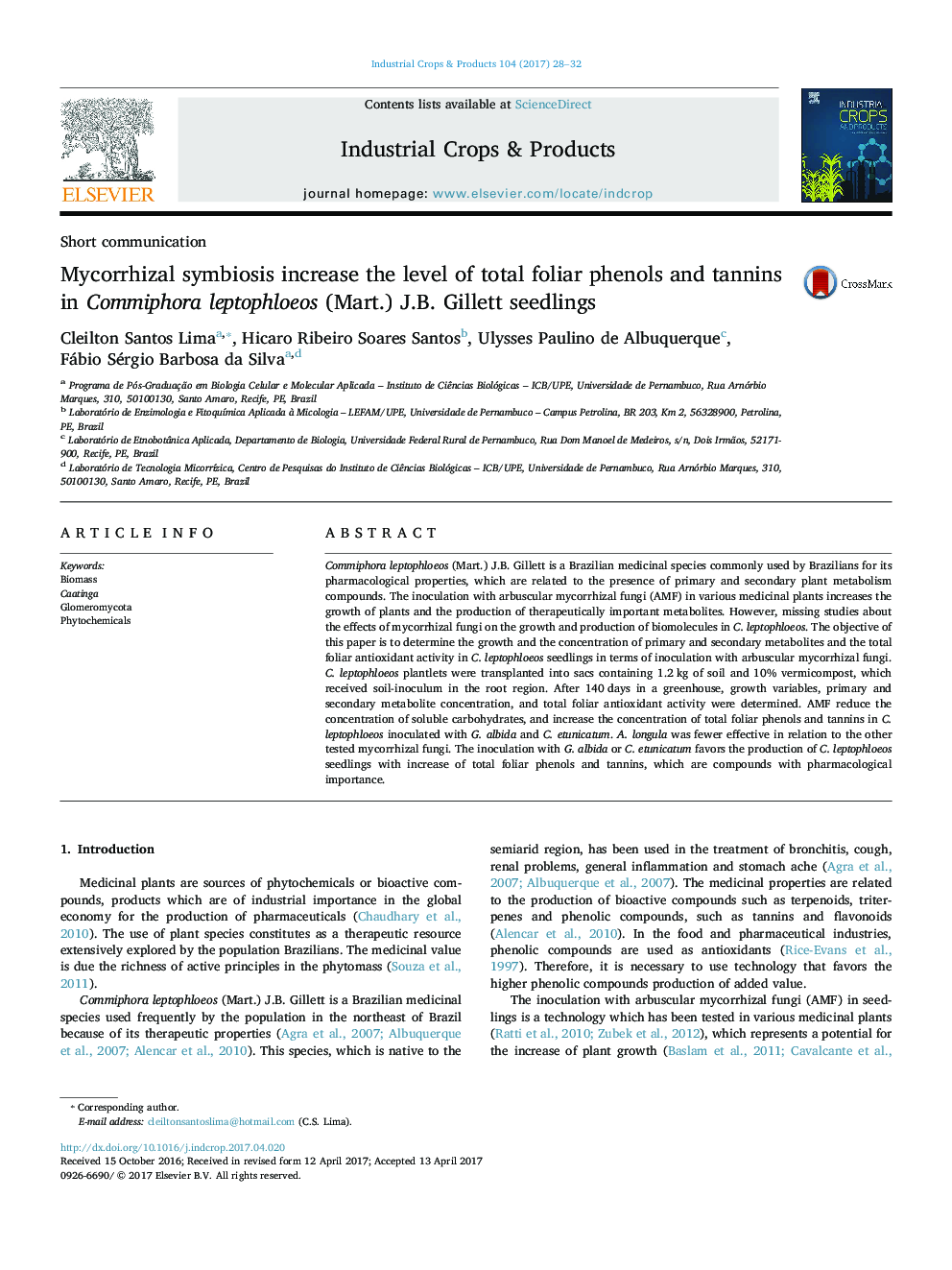| Article ID | Journal | Published Year | Pages | File Type |
|---|---|---|---|---|
| 5761777 | Industrial Crops and Products | 2017 | 5 Pages |
Abstract
Commiphora leptophloeos (Mart.) J.B. Gillett is a Brazilian medicinal species commonly used by Brazilians for its pharmacological properties, which are related to the presence of primary and secondary plant metabolism compounds. The inoculation with arbuscular mycorrhizal fungi (AMF) in various medicinal plants increases the growth of plants and the production of therapeutically important metabolites. However, missing studies about the effects of mycorrhizal fungi on the growth and production of biomolecules in C. leptophloeos. The objective of this paper is to determine the growth and the concentration of primary and secondary metabolites and the total foliar antioxidant activity in C. leptophloeos seedlings in terms of inoculation with arbuscular mycorrhizal fungi. C. leptophloeos plantlets were transplanted into sacs containing 1.2Â kg of soil and 10% vermicompost, which received soil-inoculum in the root region. After 140Â days in a greenhouse, growth variables, primary and secondary metabolite concentration, and total foliar antioxidant activity were determined. AMF reduce the concentration of soluble carbohydrates, and increase the concentration of total foliar phenols and tannins in C. leptophloeos inoculated with G. albida and C. etunicatum. A. longula was fewer effective in relation to the other tested mycorrhizal fungi. The inoculation with G. albida or C. etunicatum favors the production of C. leptophloeos seedlings with increase of total foliar phenols and tannins, which are compounds with pharmacological importance.
Related Topics
Life Sciences
Agricultural and Biological Sciences
Agronomy and Crop Science
Authors
Cleilton Santos Lima, Hicaro Ribeiro Soares Santos, Ulysses Paulino de Albuquerque, Fábio Sérgio Barbosa da Silva,
